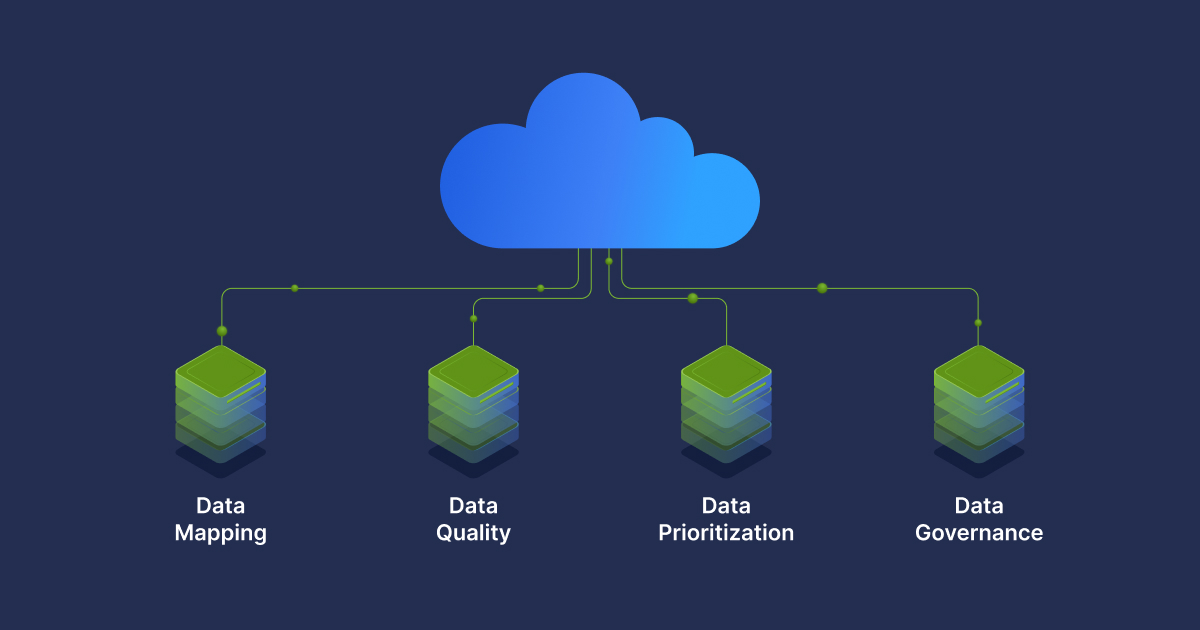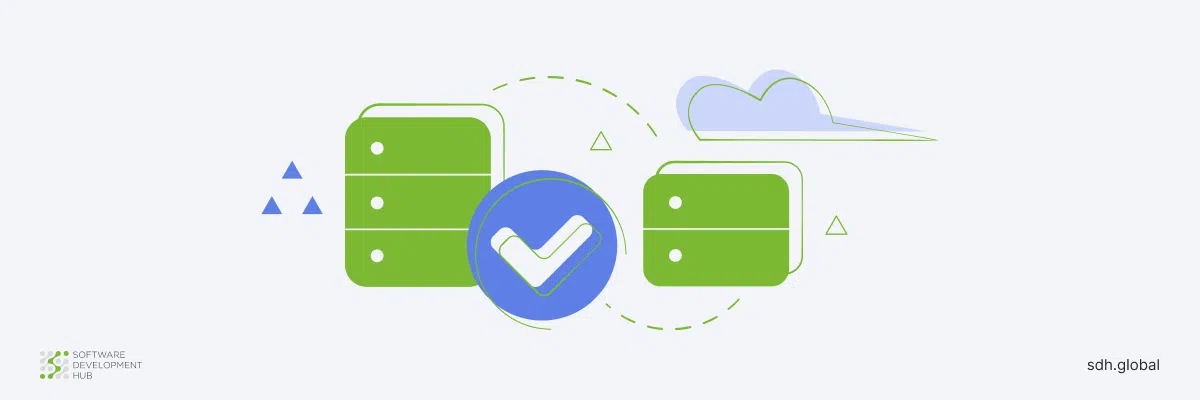EHR Data Migration: Best Practices and Challenges
In today's rapidly evolving healthcare landscape, Electronic Health Records (EHR) have become the foundation of efficient and quality patient care. The digitization of healthcare data has not only streamlined the management of patient information but has also opened the door to data-driven insights that can revolutionize healthcare delivery. However, the process of EHR data migration, which involves transferring patient records and healthcare information from one system to another, is a critical and complex undertaking.
According to Gartner statistics, 83% of migration projects are doomed to failure or do not fall within the planned budgets and schedules. This high failure rate is explained by the challenges of transferring electronic health data, both due to logistics and the difficulty in ensuring the accuracy of the transfer. In this article, we will delve into the best practices and challenges associated with EHR data migration.
Best Practices EHR Data Migration
Gain a Full Understanding of Your Data
One of the first and most critical steps in EHR data migration is gaining a comprehensive understanding of your data. This involves an in-depth assessment of the existing EHR system and the data that needs to be migrated. Some key aspects to consider are:
- Data Mapping. Create a detailed data mapping document that outlines the structure and relationships of all data elements. This will help in identifying any data gaps and redundancies.
- Data Quality. Assess the quality of the data. This includes checking for inaccuracies, inconsistencies, and data that may be outdated. Cleaning the data is essential to ensure that only accurate and relevant information is migrated.
- Data Prioritization. Prioritize data elements based on their importance in clinical workflows. This ensures that critical patient information is readily accessible in the new system.
- Data Governance. Establish data governance policies and procedures to maintain data integrity post-migration. This includes defining data ownership, access controls, and data security measures.

By gaining a comprehensive understanding of your data, you can create a roadmap for a successful EHR data migration that minimizes data loss and disruption to healthcare processes.
Scale Your Network
EHR data migration often involves moving large volumes of data across networks. To ensure a seamless migration, it is crucial to scale your network infrastructure appropriately. Here are some key considerations:
- Bandwidth Assessment. Conduct a thorough assessment of your network's bandwidth to determine if it can handle the increased data transfer during migration. Upgrading network capacity may be necessary to prevent bottlenecks.
- Data Encryption. Implement robust data encryption protocols to safeguard patient information during transit. Data security is a top priority in healthcare, and encryption ensures that sensitive data remains protected.
- Redundancy and Failover. Set up redundancy and failover mechanisms to ensure data availability and data migration continuity in case of network failures or interruptions.
- Scaling your network to accommodate the demands of EHR data migration is crucial to prevent data loss and ensure the process proceeds without hiccups.
Choose the Right Cloud Architecture
Many healthcare organizations are turning to cloud-based EHR solutions for their scalability and accessibility. When migrating EHR data to the cloud, selecting the right architecture is essential:
Public, Private, or Hybrid Cloud
Determine which type of cloud infrastructure best aligns with your organization's needs. Public clouds are cost-effective, while private clouds offer enhanced security and control. A hybrid approach can provide the best of both worlds.
Data Storage and Retrieval
Ensure that your chosen cloud architecture offers efficient data storage and retrieval capabilities. Fast and reliable access to patient records is essential for healthcare professionals.
Compliance and Security
Verify that the cloud provider adheres to healthcare compliance standards, such as HIPAA (Health Insurance Portability and Accountability Act), and provides robust security features to protect patient data.
Choosing the right cloud architecture is crucial, as it can significantly impact the efficiency and effectiveness of EHR data migration.
Challenges EHR Data Migration
While best practices can significantly enhance the success of EHR data migration, several challenges can complicate the process. It is essential to be aware of these challenges to proactively address them.
Data Integrity and Quality
Maintaining data integrity and quality during migration is a persistent challenge. Inaccurate or incomplete data can lead to clinical errors and compromised patient care. To mitigate this challenge, healthcare organizations must invest in data cleansing and validation tools, ensuring that only clean and accurate data is migrated to the new EHR system.
Downtime and Disruption
EHR data migration often involves system downtime, which can disrupt clinical workflows and patient care. Minimizing downtime is a critical challenge. To address this, organizations should schedule migration during low-activity periods, implement backup systems, and have contingency plans in place to manage unexpected disruptions.
Interoperability
Interoperability is an ongoing challenge in healthcare, and EHR data migration can exacerbate this issue. Migrating data between systems from different vendors or using different standards can lead to compatibility problems. Healthcare organizations should consider interoperability standards, such as HL7 (Health Level 7), to facilitate data exchange between different systems.
Data Security and Compliance
Protecting patient data during migration is a significant challenge. Data breaches can have severe consequences, both legally and in terms of patient trust. To address this challenge, robust encryption, access controls, and monitoring should be in place. Additionally, ensuring compliance with healthcare regulations, such as HIPAA, FDA, FHIR, is essential.
Cost and Resource Allocation
EHR data migration can be expensive and resource-intensive. The costs associated with data migration tools, staff training, and potential system upgrades can strain an organization's budget. Planning and budgeting for these costs is crucial to avoid financial challenges.
Want to have an expert SDH migrate or extract data for you?
For many healthcare organizations, EHR data migration can be a complex and daunting process. To address these challenges and ensure a successful migration, it is often beneficial to enlist the expertise of a specialized service provider. Secure Data Health is a trusted partner for EHR data migration and data extraction.
Read also: AWS Data Migration Step-by-Step
SDH offers a range of services designed to streamline EHR data migration, including:
- Data Assessment. A comprehensive analysis of your existing EHR data to identify gaps and areas that need attention.
- Data Cleansing and Validation. Data cleansing and validation services to ensure that your data is clean, accurate, and ready for migration.
- Migration Planning. Development of a detailed migration plan, including scheduling and minimizing downtime.
- Data Security. Implementation of robust data security measures, including encryption and access controls, to protect patient data.
- Compliance Assistance. Ensuring that your migration process complies with relevant healthcare regulations, such as HIPAA.
- Cost Efficiency. Budget-conscious solutions that help manage costs associated with EHR data migration.
- Secure Data Health has a team of experienced professionals who are well-versed in EHR data migration best practices and can guide your organization through the process with minimal disruption to your healthcare operations.
SDH’s Expertise in EHR Data Migration
EHR data migration is a critical step in modernizing healthcare systems and improving patient care. To navigate this complex process successfully, it is essential to follow best practices, address challenges proactively, and, if necessary, seek the expertise of specialized service providers, as SDH company.
Software Development Hub, a one-stop custom healthcare software development company, offers comprehensive EHR data migration and engineering services tailored to your needs. Whether you require the development of remote patient monitoring software, medical ERP or telemedicine solutions, our proficient team has you covered.
Our recent healthcare endeavors have encompassed:
- Architecture consulting
- FHIR implementation
- UX/UI design
- Web and mobile engineering services
- Cloud and DevOps services
For more insights into our completed projects, we invite you to explore our portfolio. Feel free to reach out to us to discuss your unique project requirements.
Categories
About the author
Share
Need a project estimate?
Drop us a line, and we provide you with a qualified consultation.







